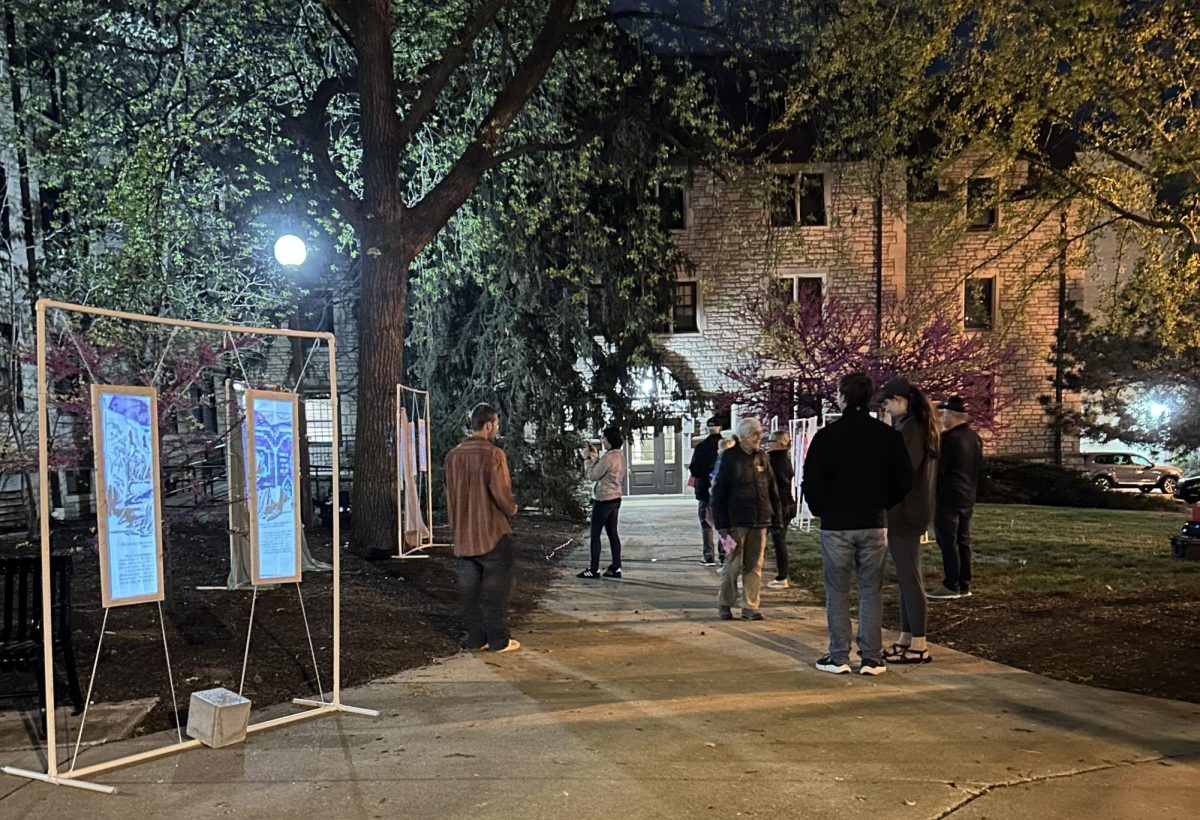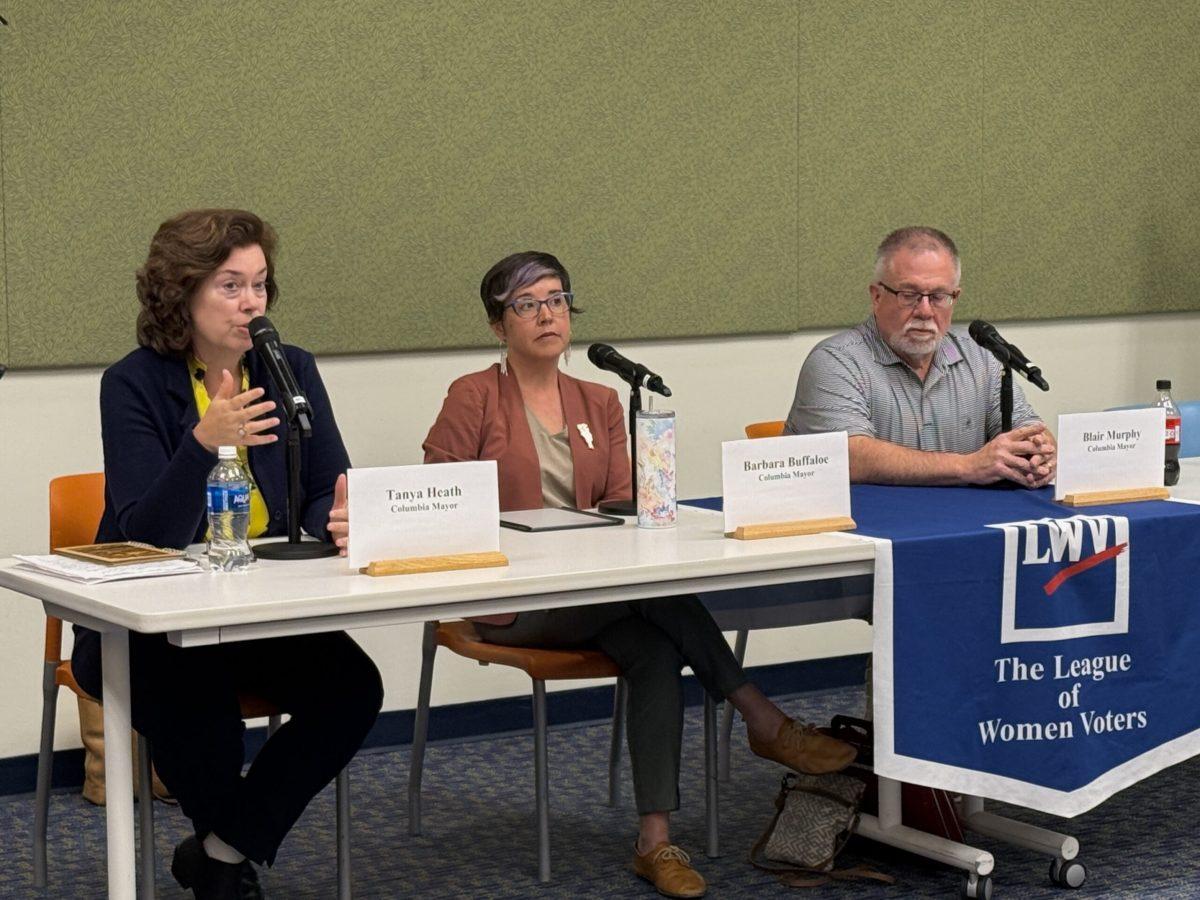Just 2 miles north from MU lies MU Extension’s Law Enforcement Training Institute. The program trains and graduates a substantial number of officers to the Columbia Police Department. CPD stops Black individuals at disproportionate rates when conducting traffic stops. Black residents of Columbia were overrepresented by 362% in traffic stops conducted by LETI officers in 2019.
Racial discrimination in police departments can be measured through disparity indices, a metric created by researchers from University of Missouri-Saint Louis. In the context of policing, a disparity index is a proportion of the number of stops concerning a specific demographic in relation to the actual proportion of said demographic in the population.
Analysis of the 2019 Vehicle Stop Data from the CPD found a correlation between the number of stops made by an individual officer and the racial disparity of an officer’s traffic stops. In other words, the more stops an officer makes, the more racially disproportionate their stops are.
The CPD data provided did not specify the patrol area for the officer, so the stop proportions are compared to the city of Columbia as a whole. The disparity index analysis and z-score analysis were restricted to stops of Columbia residents.
In April 2019, Chief Geoff Jones appointed the Vehicle Stop Committee to address the high disparity index in the 2018 numbers.
The committee has eight members, including John Worden, who MU employs as the director of the LETI program. The MU News Bureau confirmed that Worden followed university procedures related to conflict of interest disclosures.
Worden is not the only direct link between the MU Extension’s LETI program and the CPD.
Independent research found that in 2019, at least 23.4% of the force were confirmed LETI graduates. Worden confirmed that a “decent percentage” of CPD officers graduated from the LETI program.
Nineteen individual CPD officers are responsible for over 50% of stops, and of those 19 officers, at least eight went to LETI.
The 18 officers with the highest disparity indices included eight LETI graduates. The total disparity index for LETI graduates in 2019 was 3.62.
The CPD as a whole disproportionately stops its Black residents as well. Black people made up about 10.9% of Columbia’s population in 2019, yet accounted for almost 38% of the CPD’s traffic stops.
The department-wide disparity index for Black drivers grew from 3.51 in 2019 to 3.53 in 2020. In a March meeting with the committee, Jones said that the total number of stops decreased by about 50%.
The likelihood of racial discrepancies randomly occuring to the degree seen within the CPD is highly improbable. Statistical analysis of the 2019 CPD traffic stop data shows that in a city that is 10.9% Black, the probability of Black individuals accounting for 37.8% of the CPD’s traffic stops by random chance is less than 0.001%.
Jones was unavailable for comment on these figures.
The Vehicle Stop Committee proposed increasing the amount of data collected in the traffic stop form. The aim of this solution is to “document the actions of the officer,” Worden said.
The most recent committee meetings have primarily dealt with updating the vehicle stop form. The department does not collect any information that could be used to identify an officer when tracking traffic stops, Records Custodian Lydia Green said. Instead, the CPD generates a unique officer ID number for each officer and tracks them with those numbers instead of using names.
In cross-referencing traffic stop data from the Boone County Joint Communications Office with traffic stop data received from the CPD, information was missing between the reports in 185 instances.
The most recent data from the CPD available regarding disparity indices is from 2019. The data found that 189 individual officers filed an incident report for a traffic stop. These 189 officers were responsible for a total of 18,358 reports filed for 15,015 unique stops. The 3,343 report surplus is due to incidents in which two officers were in the car for the same stop.
The BCJC identified 143 individual officers who made traffic stops in 2019, while the CPD identified 189 individual officers –– leaving 46 officers unaccounted for in the BCJC data.
A 2019 memo written by Sgt. Scott Alpers placed the disparity index for the entire department at 2.92. Alpers clarified on a phone call that the number in the memo was a typo, and that the department-wide disparity index for Black drivers in 2019 was actually 3.51. Per the CPD’s publicly available data, the disparity index for data specific to Columbia residents was 3.48.
In the conclusion of the 2019 memo, Sgt. Alpers wrote, “After conducting this analysis, I do not see a need to revise our policy or training requirements related to bias-free policing.”
The 2020 vehicle stop data was due to the attorney general’s office on March 1, 2021. It will be released to the public on June 1, 2021.
_Edited by Namratha Prasad | nprasad@themaneater.com_






